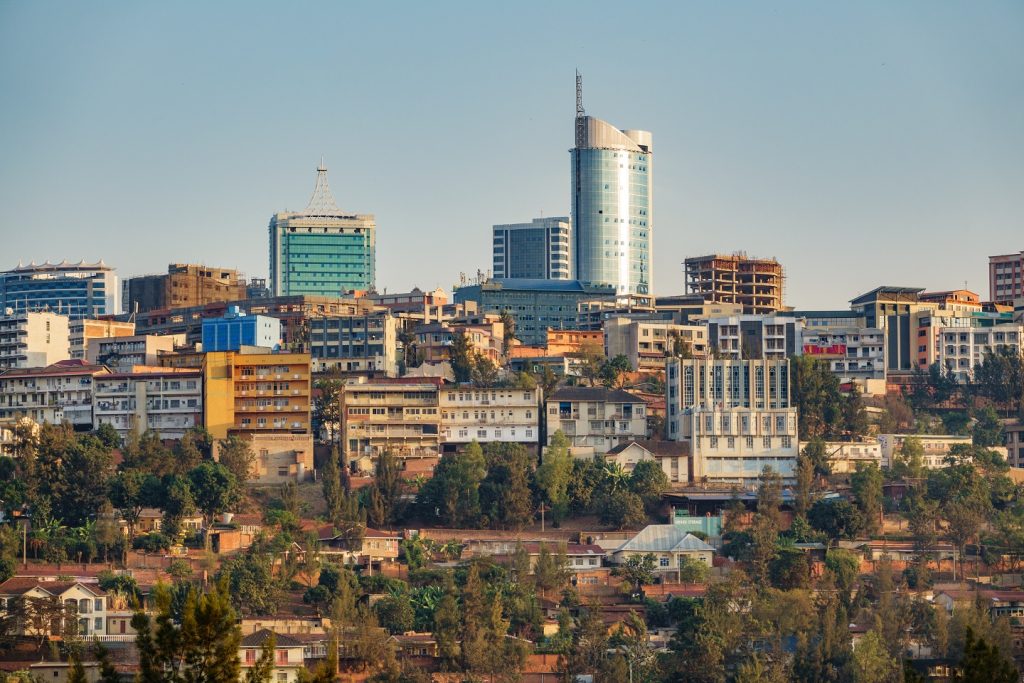
In Rwanda, there is a popular saying, “Umugati urangira ntiwakwirakwira,” which loosely translates to “A well-made basket does not creak.” This saying speaks to the importance of a strong foundation in creating something of lasting value. Over the years, this approach has been embedded in various facets of the Rwandan economy, whether it’s reform policies or city architecture or public safety.
In “Rwanda Inc.”, a book co-authored by Patricia Crisafulli and Andrea Redmond, an American woman is quoted sharing her experience of feeling safe while walking alone at night with her laptop and cell phone in Rwanda. She expresses that there is no risk to either her person or property.
Furthermore, Kigali city, the capital of Rwanda, embodies this concept in its commitment to sustainability and cleanliness. The city has been recognized as one of the cleanest in Africa for several years running, a testament to its meticulous planning and implementation of sustainable initiatives.
In the same way, Rwanda’s approach to sustainable industrialisation is built on a solid foundation of social, economic, and environmental sustainability. With a focus on long-term impact rather than short-term gains, Rwanda’s major industries are thriving while also creating positive change for society and the environment.
Rwanda’s Economic Growth: A closer look at the impressive GDP, Income Per Capita, and other Key Indicators
Over the past two decades, Rwanda has gone from an annual GDP of 4.4 USD billion in 1999 to projections of more than 30 USD billion by the end of 2022, an impressive feat that has been propelled by an average GDP growth of around 8% per year. The GDP per capita of 801.7 USD in 2019 further underscores the remarkable progress the country has made.
In 2021, Rwanda’s economy continued its upward trajectory, with a GDP of 11.07 USD billion, marking an impressive 8.7% increase from 2020. Thanks to extensive 10-year doing business reforms, the country is now the second-best place to do business in Africa, according to the 2020 World Bank report. Furthermore, it has earned the distinction of being the least corrupt country in East Africa and the fourth least corrupt in the whole of Africa.
This remarkable economic progress has been possible because of the Rwandan government’s development strategy focusing on trade, rather than aid. By emphasizing trade, Rwanda has been able to inject long-term sustainable growth, rather than short-term progress, into its economy. The government has been successful in attracting foreign investments, promoting entrepreneurship, and creating a favorable business environment.
Socioeconomic Progress in Rwanda: Remarkable achievements in the last decade
In Rwanda, the agriculture sector employs about 70% of the population and contributes about 35% to the national GDP. The sector is one of the main drivers of growth and poverty reduction. In just five years, the sector has lifted 1.7 million people above the poverty line, with commercialization playing a key role in this progress.
The country has also made significant progress in providing access to healthcare and education. Today, over 90% of the population is covered by community-based and private insurance schemes, while Rwanda is among the countries on course to achieve universal access to primary education, with a net enrolment rate of 98%, according to a 2019 UNICEF report.
Maternal mortality rates have dropped significantly, from 476 per 100,000 live births in 2010 to 210 per 100,000 live births in 2015. Additionally, as of 2016-2017, 98% of women now deliver in health facilities. Women’s access to land has contributed to increased control over productive resources and access to loans, as they use it as collateral in banks, which has improved their financial capacity. Today, 26% of women own land, while 54% of women co-own land with their spouses. This is a stark contrast to the past, where women had no rights to land and assets, and women and girls were denied inheritance rights.
Major Industries in Rwanda
Rwanda’s major industries include agriculture, tourism, mining, and construction. The agricultural sector is the backbone of the country’s economy, contributing to 35% of the GDP and employing around 70% of the population. The country is known for its production of coffee, tea, and pyrethrum. The tourism industry has been growing rapidly in recent years, with attractions such as national parks, gorilla trekking, and cultural tourism. Rwanda’s mining sector mainly focuses on the extraction of tin, tungsten, and tantalum, while the construction industry has seen significant growth in response to the country’s rapid urbanization.
Sustainable Industrialisation in Rwanda: Scope and Challenges
In the book Rwanda Inc. published in 2012, President Paul Kagame in his discussions with the authors of the book, talks about building ‘something out of nothing.’ Looking back, the phrase makes a slight hint towards a sustainable approach to growth and development.
Rwanda’s sustainable industrialization has been a crucial component of the country’s economic transformation over the past two decades. The government’s efforts to develop a robust manufacturing sector, promote entrepreneurship, and attract foreign investment have led to significant progress in terms of job creation, GDP growth, and poverty reduction.
Today, the country is home to a growing number of manufacturing companies, ranging from textiles and garments to construction materials and electronic equipment. The government has also prioritized renewable energy, aiming to achieve 100% clean energy by 2024 through investment in hydro, solar, and methane gas power.
Although there are still some challenges that need to be addressed, the government has taken a proactive approach to promote growth in the sector. To overcome obstacles such as limited access to finance and skilled labor, infrastructure gaps, and high production costs, the government has implemented attractive measures to encourage industrial manufacturing in Rwanda. Additionally, they have invested in vocational training and fostered public-private partnerships to further support the growth of the sector.
Know more about Rwanda Government’s public-private partnership with ARISE IIP here.
